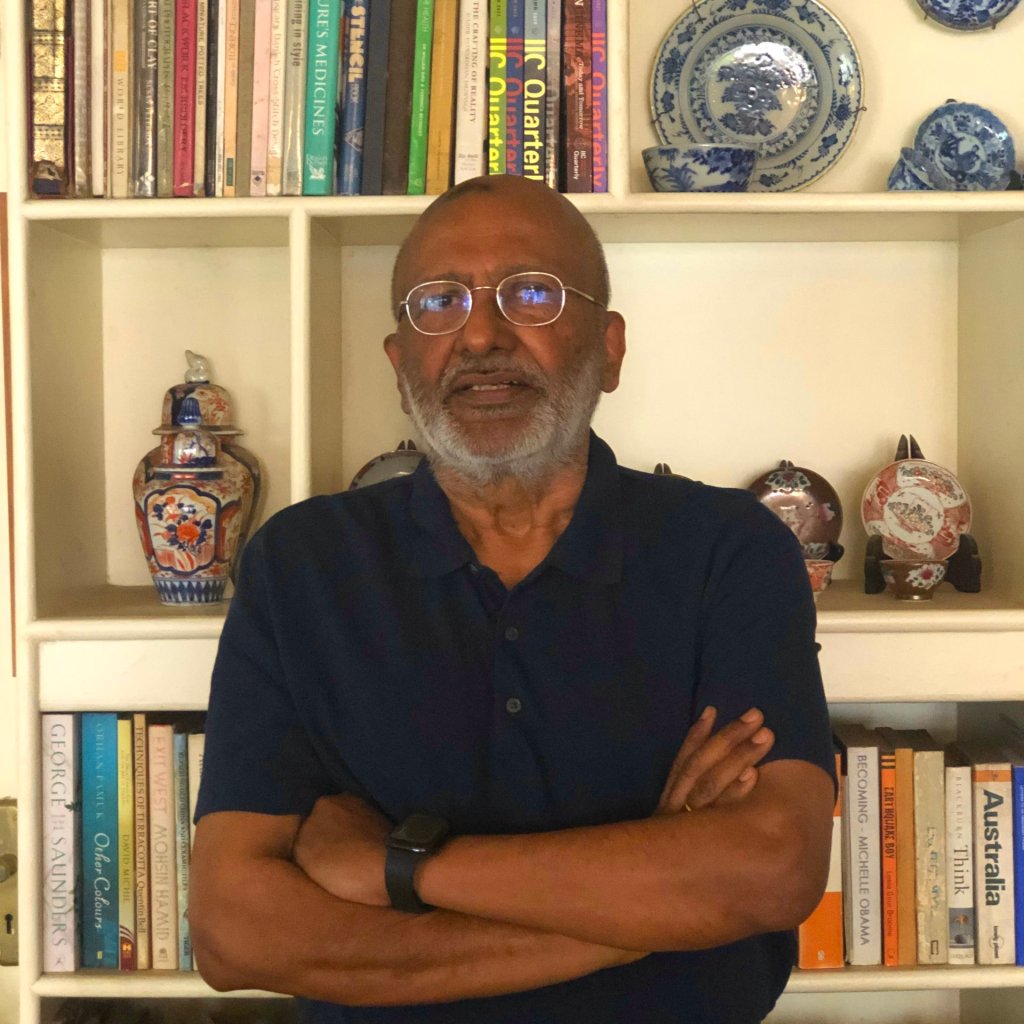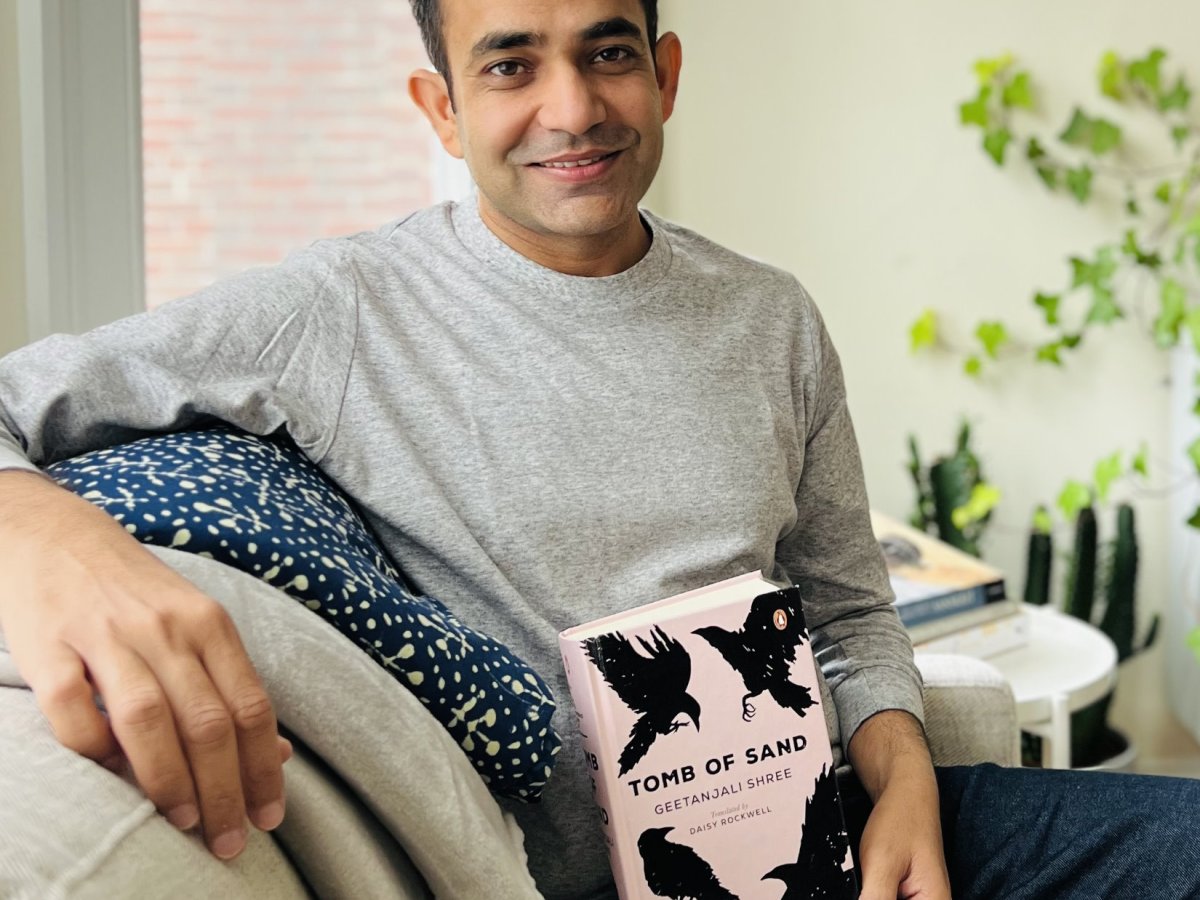As Chief Editor – Publications Division at India International Centre, Adoni Ravi Sekhar launched the prestigious IIC Quarterly back in 1975. Shortly thereafter, he went on to build a career in banking with ANZ Grindlays Bank, and then as Training Director and Executive Coach with Dale Carnegie Training, while the IIC Quarterly is still going strong even after almost 50 years! We caught up with Sekhar, who has a deep love for books and is also a rare books collector, for a quick chat about his years at Oxford University, the IIC days, his thoughts on collecting antiquarian books, and some of his favourite books and authors.
You did an MA in History from St. Stephen’s College in Delhi and then an MA in Modern History from Oxford, in the UK. What was most memorable about the time you spent at Oxford?
My interest in History began at school and this led to its choice as the primary subject for my first degree, BA (Hons) at Madras Christian College. The Principal, Dr Chandran Devanesan, was a historian and he had encouraged tutors from abroad – Dr Paul Lewis from Canada being one – to teach at MCC. Their influence and our move to New Delhi led a continuation with History and a natural progression to join the highly competitive and exclusive St Stephen’s College. It had a renowned History department led by Prof Mohd Amin, to whom I had access while my registration for MA (History) meant classes were mostly conducted centrally at the Delhi University.
As I headed to completion of the MA degree, Oxford was the next logical step since I had decided on a career in academics. I obtained a British Council Award for study at Balliol College, University of Oxford, which I learnt later was the oldest, most prestigious college for Modern History since the Master and several other Fellows were renowned historians. The Oxford method of teaching is unique in that the overall assessment of academic achievement lay with your tutor. The weekly or bi-weekly two-hourly tutorials were assigned, topics were researched, written and discussed. These were the all-important criterion and a final examination perhaps was not even necessitated. I even know of a case where a student fell ill on the eve of the finals and he was awarded a degree on the recommendation of his tutor. Needless to add, apart from leading faculty dons (as Professors were referred to) and with world-class libraries like the Bodleian and the Radcliffe Camera, financial support, student amenities, comfortable accommodation and boarding, it is not surprising that the University of Oxford is among the very best in the world.
You joined the Indian International Centre in 1975. What was it that attracted you to the IIC? Tell us about the IIC Quarterly, which you launched back then? Your views on the way the IIC Quarterly, which is still in print after all these decades, has shaped up?
Armed with an Oxford degree, I literally walked into my first job (I used to live across Lodi Gardens, next to the IIC) since they were looking for an Editor – publications division and start a quarterly journal. Since this seemed like a quasi-academic job, and the pay was more than that of a Reader in Delhi University, I accepted the offer. This was one of the best decisions I made and the most enjoyable first job one could ever hope for. I was given a free rein in conceptualising, designing, commissioning and overseeing the division. While the emphasis was on international and cultural affairs given IIC’s credo, with the range of lectures, talks and events taking place almost every other day, which I was also involved in organising, there was no shortage of content.
I recall a popular lecture given by Dr K Subrahmanyam, Director of the Institute of Defence Studies (and father of the current Minister of External Affairs, S Jaishankar) on India’s nuclear test in Pokhran, which had happened just before that lecture was given. I took the decision to publish it as a pamphlet and was swamped with requests, with every Embassy and High Commission in the capital ordering multiple copies. It went into reprint immediately!
The IIC Quarterly, and a range of books and special issues, were a hit from the start and the Quarterly soon established itself as the leading intellectual journal in Delhi, and among the international membership of IIC. I feel proud that it continues to be in print after nearly 50 years and am quite pleased with how my ward has grown up. The current format is that of a book, sometimes 400 pages long, published at intervals with a selection of commissioned articles from authorities in the field, occasionally with a central theme, with photographs and illustrations. I believe that when a definitive history of the IIC is written, my contribution to its unique status will deserve a page.

You are a committed bibliophile, right? Tell us about your deep interest in books. What kind of books do you like? Any favourite genre(s)? Favourite authors? What book(s) are you reading these days?
I do not qualify to be called a bibliophile as despite having a large collection of books, there are many that I have not read! While travelling or browsing, I was tempted to buy books frequently in the past but with the advent of the Internet this has largely ceased. The genres I enjoy most are travel, cooking, memoirs and history. Book reviews are also something I read quite frequently and those are often as interesting as the book being reviewed.
Some of my favourite authors are Bruce Chatwin, Anthony Bourdain and William Dalrymple. One is spoilt for choice among Indian authors for both fiction and non-fiction; some of my favourites there are Amitav Ghosh, Vikram Seth and Salman Rushdie. I think in India we have developed a special brand and style of writing which cuts across all boundaries of readership.
I am re-reading books and the ones I have currently in hand are Anne Fadiman’s Ex Libris, Anthony Bourdain’s Kitchen Confidential and The Economist Style Guide.
You collect rare books. How did you get started with this? What was it that inspired you to start collecting antiquarian books? What kind of books do you look for, what kind of books do collect? For you, personally, what is it that makes a book collectible?
One cannot do justice to the subject of antiquarian books in a short note. I inherited the taste from my wife who is an inveterate collector of all manner of things. We have a collection of over 100 books which are over 100 years old, and acquired them fortuitously. They are housed securely in a locked cabinet and I am still in the process of cataloguing them. There should be some gems there.
Rare book collection is not for everybody. It is not just the value but the love of books which drives it. They can be found anywhere and everywhere in old piles, auction houses and defunct libraries, particularly in Raj-era clubs and hotels. Delhi, Kolkata and Bengaluru are good hunting grounds. There are numerous antiquarian bookshops on the Internet which can be explored, including eBay and AbeBooks.
I am a sucker not just for price but the condition of the old book – the binding, the printing, the end papers and appearance. The excitement is just as I feel about handling a new book – the crisp pages (they don’t have them uncut these days), the quality of paper and production, and last but not the least, its smell – like that of a new car. If anything, I’m not able to find enough time to devote myself to collecting antiquarian books.
Your thoughts on the Kindle?
I may be out of sync but I do not believe in bedtime reading – bad both for the eyes and the back. A regular book and sitting in a comfortable chair with an overhead lamp is preferable. I am not a great advocate of the Kindle or eBooks. Reading on the go or while travelling does not appeal to me.
What would you say to people who’re always borrowing books from others, then conveniently ‘forgetting’ to return those?
Some people believe that books read better if they are purloined. Remember The Book Thief. I do not normally support lending my books and would look askance at anyone who pinched them or forgot to return them. Book-lifting from book shops is also a heinous offence although some people think that given the high cost of books it is okay. Certainly not! Once a book lover or collector, you are always a faithful lover. No fakes or wannabes allowed entry.







